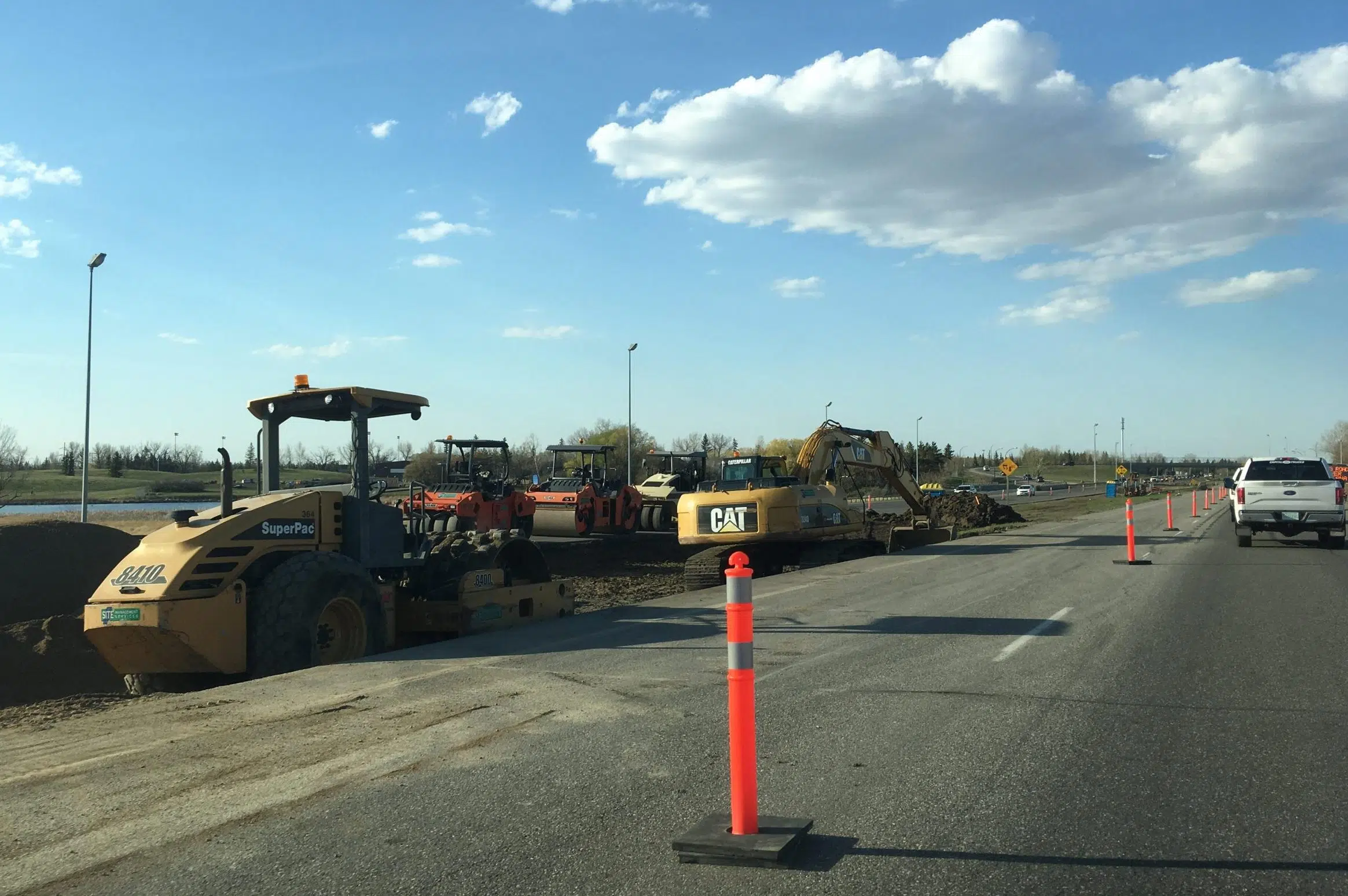As road crews drill into Regina’s asphalt and concrete for the summer construction season, drivers are saying they want the city to be more efficient in organizing work schedules.
Listeners on the 980 CJME textline on Tuesday said they want to see work getting done on weekends and holidays, outside of busy rush-hour times during the work week.
Mayor Michael Fougere spoke on the Greg Morgan Morning Show about drivers’ road woes.
“We could do all those things,” he said of the schedule changes. “You could actually put a tender out for work to be done over a long weekend (or) in the evenings. There could be cost implications for that.”
Fougere said he’s open to the option and will be asking the city’s administration to look into the possibility.
“I think we should be looking at off-hour construction, or maybe have less of construction happening during morning rush hour and less in the evening rush hour,” he said.
When asked about crews working on the roads during the evenings, Fougere said it’s an option, but he cautioned there may be an added cost for it.
He said it’s favourable to use crews’ 12-hour work shifts to avoid working during busy rush-hour times.
Embrace the zipper merge, Fougere says
As for cutting down traffic congestion in construction zones, Fougere said it’s important to use the zipper merge.
“It actually works. It does move people more efficiently,” he said.
But the mayor added that enough signage is an important part of communicating to drivers how to use the zipper merge.
“We need to have more signs to say, ‘Zipper merge begin’ earlier on … so when someone comes on your (left-) or right-hand side, they’re not cutting you off, they’re actually moving traffic faster. It is a thing to be doing and people have to learn how to do that,” he said.
Photo radar update
Regina, Saskatoon and Moose Jaw have the most photo radar cameras in the province, but all of the revenue generated by those cameras doesn’t stay in those cities.
Fougere pointed out that province-wide, the revenue generated by photo radar is estimated at $4 million. The dollars used to stay in the community where the infraction occurred, but the province has changed that formula.
Now, Fougere said, the province gets 25 per cent of the revenue and the remaining 75 per cent is split equally between the city where the infraction took place and other locales. The money that leaves the cities is being used to fund other safety programs in the province.
“We don’t begrudge the fact that there has to be safety around the province, but the province should fund that, not the cities,” Fougere said. “The money should stay back in Regina or Saskatoon or Moose Jaw, where those cameras are, and fund safety programs in our city.”
Fougere said discussions with the provincial government will continue.







